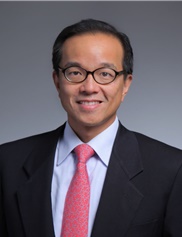Grants Funded
Grant applicants for the 2024 cycle requested a total of nearly $3 million dollars. The PSF Study Section Subcommittees of Basic & Translational Research and Clinical Research evaluated more than 100 grant applications on the following topics:

The PSF awarded research grants totaling over $650,000 dollars to support more than 20 plastic surgery research proposals.
ASPS/PSF leadership is committed to continuing to provide high levels of investigator-initiated research support to ensure that plastic surgeons have the needed research resources to be pioneers and innovators in advancing the practice of medicine.
Research Abstracts
Search The PSF database to have easy access to full-text grant abstracts from past PSF-funded research projects 2003 to present. All abstracts are the work of the Principal Investigators and were retrieved from their PSF grant applications. Several different filters may be applied to locate abstracts specific to a particular focus area or PSF funding mechanism.
The Use of Adipose Stem Cells in Breast Surgery: Friend or Foe?
Ernest Chiu MD, FACS
2009
Tulane University
National Endowment for Plastic Surgery Grant
Breast (Cosmetic / Reconstructive), Other
Breast cancer affects one in eight women. Patients may undergo a variety of surgical options including local excision, partial mastectomy or complete mastectomy. Reconstruction varies depending on the surgical defect. A growing number of plastic surgeons are using fat injection techniques to restore post-mastectomy defects. In any given fat harvest site (abdomen, flank, buttock, etc.) there is an ample supply of adipocytes and a small percentage of adipocyte derived stem cells (ADSC) that can be purified from lipoaspirates. ADSCs have potent angiogenic and regenerative properties capable of treating numerous medical and surgical problems. However from a safety standpoint, it is not known whether these beneficial properties of ADSCs for reconstruction could have detrimental effects on any remaining breast cancer cells post-resection, or if ADSCs could promote transformation of normal breast epithelium.
The purpose of this study is to investigate the safety of using ADSCs when exposed to breast cancer cells. We hypothesize that adipocyte stem cells influence the growth and metastasis of breast cancer whereas primary lipoaspirates will not affect tumor progression. Aim 1: in vitro biochemical analysis of ADSCs versus lipoaspirate co-culture with breast cancer cells measuring cancer cell proliferation, migration, invasion, and pro-angiogenesis ability. Aim 2: in vivo analysis of ADSCs versus lipoaspirate on breast cancer xenograft growth and metastasis in immunodeficient mice.
The completion of this study will generate the critical mass of data needed to initiate larger, extramural funded studies for the timely surgical topic of fat injection procedures and the potential impact on cancer. This completely novel study is one that could only be implemented by a unique interdisciplinary research team of a reconstructive surgeon (Dr. Chiu), cancer biologist (Dr. Rowan) with participation of stem cell biologists (Drs. Bunnell and Gimble).
 Laboratory bench to bedside scientific research has remained an integral part of my plastic surgery career. I’ve been blessed to work with outstanding research mentors including Dr. Michael Longaker and Dr. Judah Folkman who encouraged me to study challenging questions in areas of wound repair, inflammation, angiogenesis, and cancer. After completing NYU Plastic Surgery Residency and MSKCC Microsurgery Fellowship, I returned to my home state to establish a microsurgical reconstruction practice with Dr. Robert Allen, and research lab focused on tissue engineering. Shortly thereafter, Hurricane Katrina battered our beloved city of New Orleans. However, it has not deterred my passion for research and academic excellence. In collaboration with Tulane and LSU investigators, our lab focuses on the clinical safety issues related to adipose stem cell based therapies. Without the generous financial support by PSEF and ASPS, this project could not be completed.
Laboratory bench to bedside scientific research has remained an integral part of my plastic surgery career. I’ve been blessed to work with outstanding research mentors including Dr. Michael Longaker and Dr. Judah Folkman who encouraged me to study challenging questions in areas of wound repair, inflammation, angiogenesis, and cancer. After completing NYU Plastic Surgery Residency and MSKCC Microsurgery Fellowship, I returned to my home state to establish a microsurgical reconstruction practice with Dr. Robert Allen, and research lab focused on tissue engineering. Shortly thereafter, Hurricane Katrina battered our beloved city of New Orleans. However, it has not deterred my passion for research and academic excellence. In collaboration with Tulane and LSU investigators, our lab focuses on the clinical safety issues related to adipose stem cell based therapies. Without the generous financial support by PSEF and ASPS, this project could not be completed.